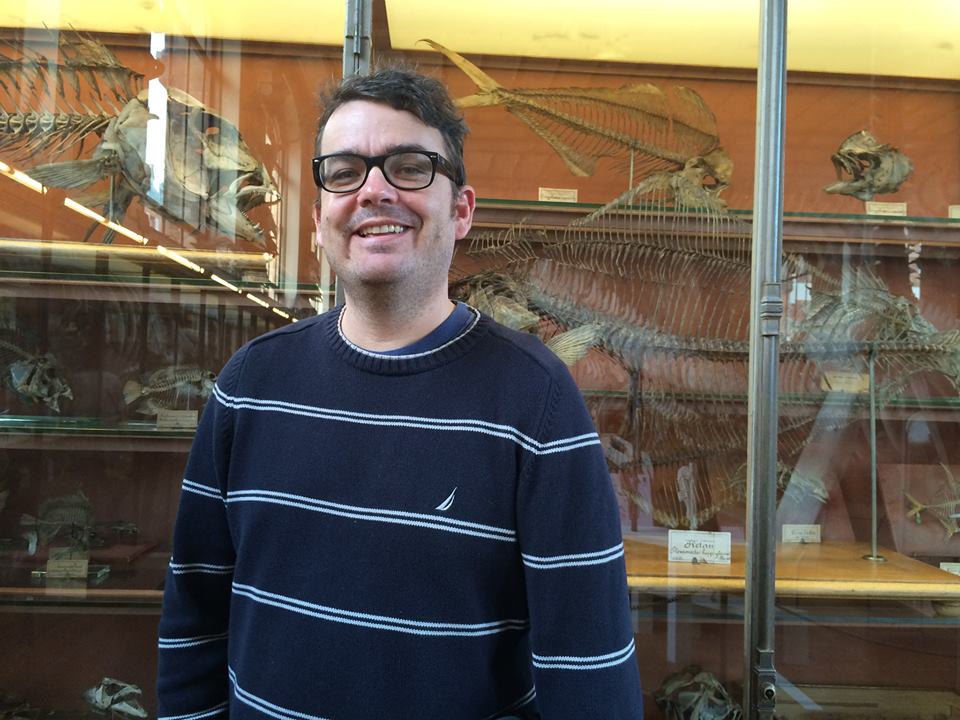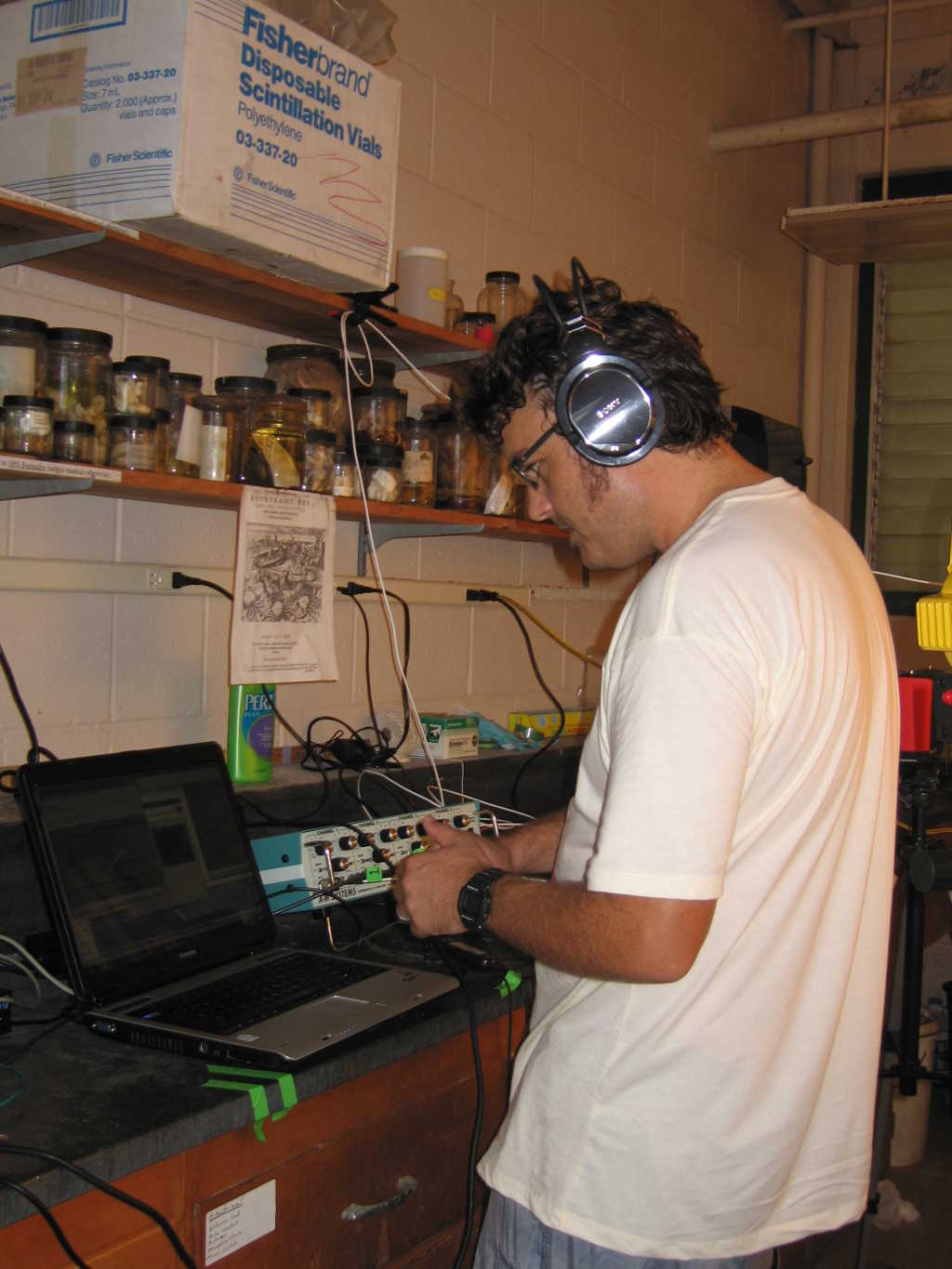

ACER would like to welcome our newest post-doctoral researcher, Dr. Kelly Boyle.

Dr. Boyle joined the Oyster Reef group, lead by Dr. Sean Powers, at the beginning of the year and will be investigating the resilience of oyster reefs in response to the Deepwater Horizon Oil Spill. Along with continuing Dr. Powers’ survey of oysters and reef associated species from Louisiana to the Florida panhandle, he will also lead the investigation on how oyster reef communities respond to exposure to oil, an oil dispersant and changes in salinity in a large mesocosm experiment at DISL.
Originally from Long Beach, California, Dr. Boyle received his BA from UC Berkeley, M.S from Cal State and PhD from the University of Hawaii at Monoa. Dr. Boyle joins ACER after completing a postdoctoral researcher position at the Muséum National d’Histoire Naturelle (National Natural History Museum of France) in Paris. There he studied the morphology of piranhas and pacu fishes in relation to hearing, and differences in the feeding ecology of these species.

“I find fish fascinating because they are so diverse (over 30,000 species), and live in environments that are so foreign to us. Most fish are not known to communicate with sound, but substantial minorities do vocalize and, as Karl von Frisch said (Nobel Prize co-winner in medicine): “There may be much to discover in the future about the language of fishes.” Dr. Boyle explained, “scientists continue to reveal how important sound may be for many marine species. Furthermore, there is increased awareness about the potential detrimental effects of growing levels of anthropogenic noise in marine and aquatic environments from boats, ships, and other activities that may adversely impact the well-being of these animals”.
While much of his past research focused on bioacoustic of fishes, his research interests are in marine ecology, evolutionary morphology (comparative anatomy), behavioral ecology, and sensory biology of fishes.
ACER is excited to have Dr. Boyle as part of their team, and he is looking forward to the work ahead. “I am interested in working on oyster reef resilience because oyster reefs support a diverse community of organisms. In addition, oysters are important to the economy and culture of the Gulf coast. I have done work on coral reefs in the past, and I am eager to be working in a new marine and coastal environment.”
You can find out more about the work being done by Dr. Powers’ team on the Oyster Group Fact Sheet and on the ACER Research page.